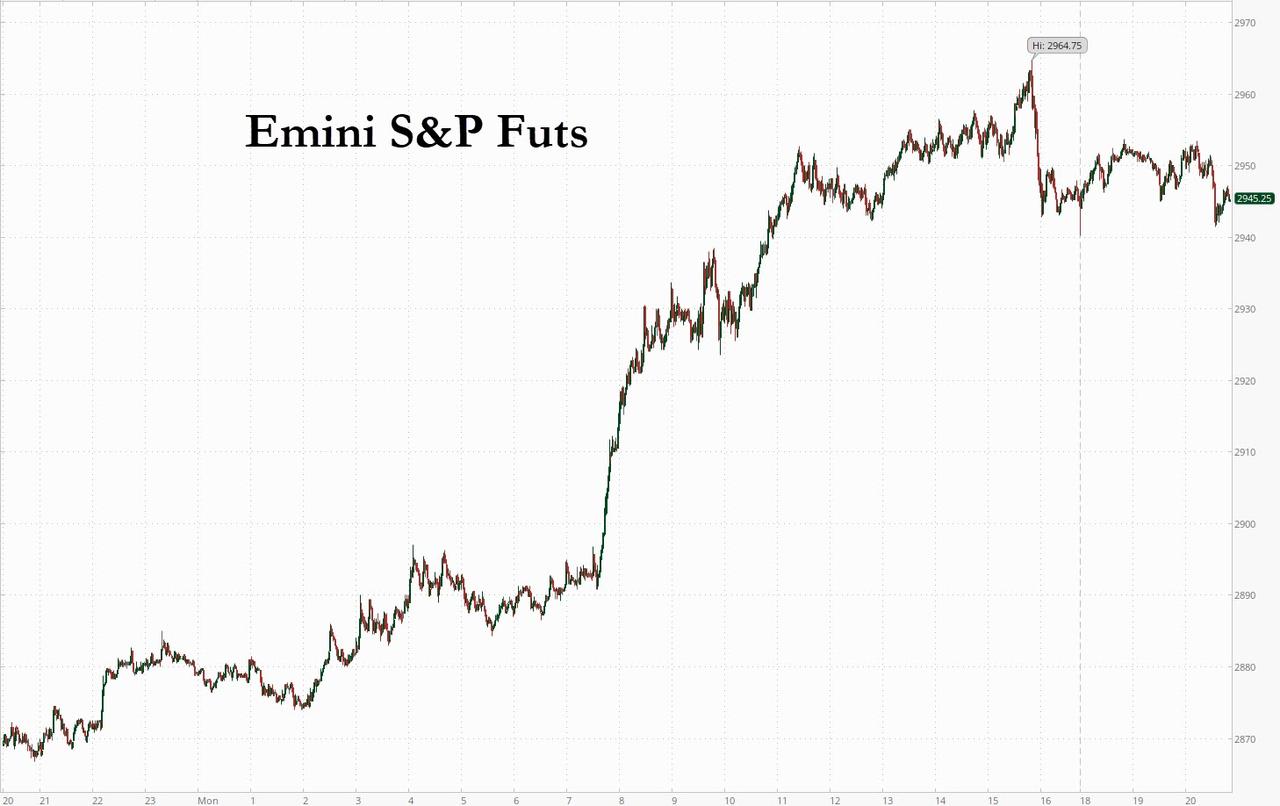Nasdaq Imposes Restrictions On Chinese IPOs
Tyler Durden
Mon, 05/18/2020 – 21:00
In a move that anyone who has ever invested in a Chinese fraud stock (which one can argue are most of them) will argue is long overdue, late on Monday Reuters reported that the Nasdaq is set to unveil new restrictions on initial public offerings, in a move that will make it more difficult for some Chinese companies to debut on its stock exchange.
While Nasdaq will not cite Chinese companies specifically in the changes, according to Reuters, the move is being driven by concerns about some of the Chinese IPO hopefuls’ lack of accounting transparency and close ties to powerful insiders.
And since the Nasdaq move, which may well be prompted by legitimate widespread concerns about shady Chinese accounting, comes just days after the Trump administration barred a government retirement fund from investing in Chinese equities, it will be seen by Beijing as another political intervention in soft capital controls imposed by the US vis-a-vis Chinese equities, inviting further retaliation from China against this “latest flashpoint in the financial relationship between the world’s two largest economies.”
Nasdaq also unveiled some restrictions on listings last year, seeking to curb IPOs by small Chinese companies. Their shares often trade thinly because most stay in the hands of a few insiders. Their low liquidity makes them unattractive to many large institutional investors, to whom Nasdaq is seeking to cater.
Whatever the reason behind the move, it has been a long time coming, considering the ease with which countless Chinese frauds are allowed to list in the US and soak up capital of gullible US investors. Last month, Luckin Coffee which had a U.S. IPO in early 2019, announced that an internal investigation had shown its chief operating officer and other employees fabricated sales deals.
The new rules will require companies from some countries, including China, to raise $25 million in their IPO or, alternatively, at least a quarter of their post-listing market capitalization, the Reuters sources said. This would represent the first time Nasdaq has put a minimum value on the size of IPOs. The change would have prevented several Chinese companies currently listed on the Nasdaq from going public. Out of 155 Chinese companies that listed on Nasdaq since 2000, 40 grossed IPO proceeds below $25 million, according to Refinitiv data.
And while it was not immediately clear how many of these IPOs were Chinese, Reuters notes that Chinese firms have historically pursued such small IPOs because they allow their founders and backers to cash out, rewarding them with U.S. dollars they cannot easily access because of China’s capital controls. And they have US bagholders, and lax exchange listing standards to thank. At the same time, these newly IPOed frauds would also use their Nasdaq-listed status to convince lenders in China to fund them and often get subsidies from Chinese local authorities for becoming publicly traded.
Finally, the proposed rules will also require auditing firms to ensure that their international franchises comply with global standards, and Nasdaq will also inspect the auditing of small U.S. firms that audit the accounts of Chinese IPO hopefuls, the sources added.
The news of the restriction hit S&P futures which slid to session lows on a day when there was no talk of trade war, and instead the market was obsessing over what in retrospect will end up being one giant “Made in the US” bait-and-switch by Moderna, which sold $1.25BN in stock after soaring earlier in the day on news of a “successful” Phase 1 coronavirus vaccine trial which involved eight “young and healthy” people.
Meanwhile, ahead of the Nasdaq news and perhaps sensing what was coming, China has been urging domestic companies to look at listing in London, Reuters also reported earlier in the day, as the country aims to revive deals under a Stock Connect scheme and strengthen overseas ties in the wake of the coronavirus crisis.
The Shanghai-London Stock Connect scheme, which began operating last year, aims to build links between Britain and China, help Chinese companies expand their investor base and give mainland investors access to UK-listed companies.
The original plan was for several companies to take part in the scheme in the first couple of years, but so far only one company — Huatai Securities — made the trip from Shanghai to London last June.
But now Chinese authorities have given the go-ahead for China Pacific Insurance and SDIC Power to move ahead with their London-listing plans, the sources said, after both deals were halted last year.
They also gave the nod to China Yangtze Power (600900.SS) to begin preparations for a secondary listing on the London Stock Exchange, the sources said, speaking on condition of anonymity as the matter is confidential.
The sources, including officials from banks, government and exchanges, said that the aim was to push for a resumption of listings under the Stock Connect scheme as China seeks to improve ties with the outside world and help to fund its post-lockdown recovery. “In the second half of this year, we could see one or maybe two Chinese companies list in London,” said one of the sources, who is closely involved in the process.
“China is among the first countries to come out of lockdown, and is keen to get back on track with plans to improve trade relations with the UK,” he added, by which he of course meant finding more gullible, naive investors to part with their money after investing in the next Chinese Luckin-like fraud, especially if the US window is closing.
via ZeroHedge News https://ift.tt/2zS33pr Tyler Durden
